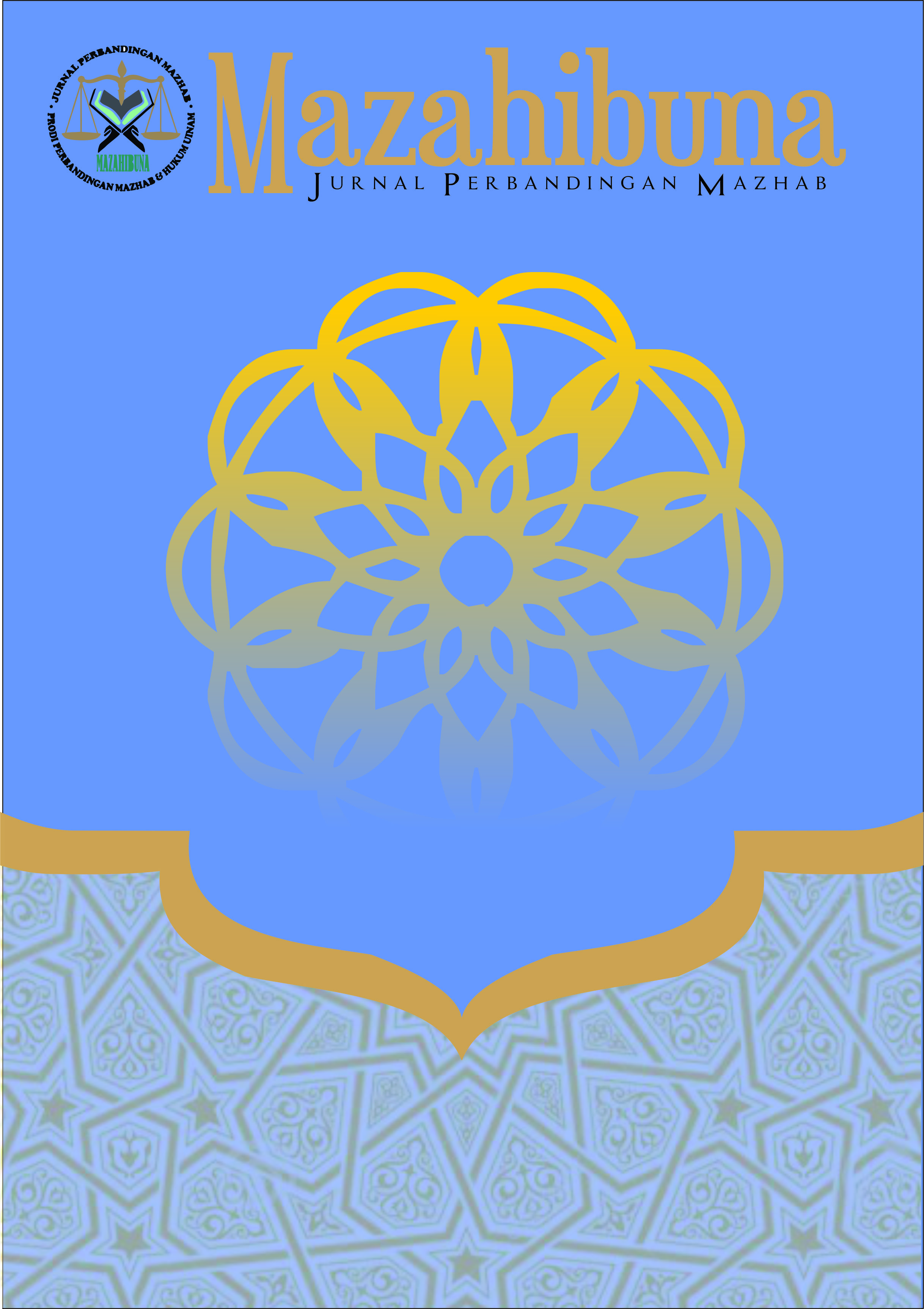Diskursus Cadar dalam Memaknai Pandemi Covid-19; Suatu Kajian Syariat dan Fungsi Medis
Abstract
Since the outbreak of disease in Indonesia is Corona virus, the Indonesian government issued several policies and provisions on the procedure of living a life during the pandemic. One of the most common things to do is the implementation of a clean and healthy lifestyle as well as using masks. The emergence of policies to always use masks raises thoughts or opinions that can lead to the friction of understanding for the society, especially Muslims. The opinion is the assumption of some people who believe that the use of veil as an obligation for women of Muslimah more obedient to the recommendation of the Government is not appealed by the command of God to use the veil. Until finally the virus appears and requires that each person use a mask judged as a blow for those who do not run the order of use of the veil. However, such thinking does not have to arise and propagate in people's lives, because the use of the veil itself has a different opinion, both among modern scholars and classical scholars. Therefore, both obliging and not requiring the veil is expected to continue to carry out the recommendations and policies issued by the Government, especially the use of masks during pandemic as it is today.
References
Abdul Syatar, Muhammad Majdy Amiruddin, and Arif Rahman. “Darurat Moderasi Beragama Di Tengah Pandemi Corona Virus Desease 2019 (Covid-19)”. KURIOSITAS: Media Komunikasi Sosial dan Keagamaan 13, no. 1 (June 2, 2020): 1-13. Accessed June 15, 2020. http://ejurnal.iainpare.ac.id/index.php/kuriositas/article/view/1376.
Abdurrahman, Alwiyah. Gaya Hidup Wanita Islam. Bandung, Mizan, 1990.
Alwi, Hasan. Kamus Besar Bahasa Indonesia. Cet.2; Jakarta: Balai Pustaka, 2002.
al-Buti, Sa’id Ramadhan. Ila Kulli Fatatin Tu’minu bi Allah. Damaskus: Maktabah al-Farabi, 1975.
Fithrotin. “Cadar Wanita Dalam Perspektif Al-Qur’an”,Institut Agama Islam Lamongan.
Kementrian Agama RI, Syamil Al-Qur’an (Al-Qur’an dan Terjemahan). Solo: PT Tiga Serangkai, 2014.
Khaldun, Abdurrahman bin. Muqaddimah Ibnu Khaldun. Kairo: Dar al-Fajr Li al-Turats, 2004.
al-Maliki, Ahmad bin Muhammad al-Sawi. Al-Syarh Al-Saghir. Kairo: Dar al-Ma’arif, t.th.
al-Maududi, Abu al-A’laa. Al-Hijab. Damaskus: Dar al-Fikr, 1964.
al-Musoli, Abdullah bin Muhmud bin Maudud. al-Ikhtiyar Li Ta’lil al-Mukhtar. Bairut: Dar al-Kutub al-Ilmiyah, t.th.
al-Qaradawi, Suyuf. Fatawa Mu’asirah. Bairut: al-Maktab al-Islami, 2000.
Qudamah, Abdullah bin Ahmad bin. Al-Mughni. Bairut: Dar al-Fikr, 1405 H.
Shihab, M. Quraish. Jilbab Pakaian Wanita Muslimah. Jakarta: Lentera Hati, 2014.
al-Syirazi, Ibrahim bin Ali. Al-Muhazzab Fi Al-Fiqh Al-Syafi’ie. Damaskus: Dar al-Qalam, 1992.
al-Tabari, Muhammad bin Jarir. Jāmi’ al-Bayān fīTa’wīl al-Qurān. Juz. 12; Bairut: Mu’assasah al-Risālah, 2000.
Umar, Nasaruddin. “Antropologi Jilbab”, Jurnal Kebudayaan dan Peradaban Ulumul Qur’an, Vol.VI No.5, 1996.
Yunus, Nur Rohim. “Kebijakan Pemberlakuan Lockdown Sebagai Antisipasi Penyebaran Corona Virus Covid-19,” Salam: Jurnal Sosial dan Budaya Syar’i. Vol VII No. 3, 2020.

This work is licensed under a Creative Commons Attribution 4.0 International License.
Authors who publish with Mazahibuna: Jurnal Perbandingan Mazhab agree to the following terms:
- Authors retain copyright and grant the Mazahibuna: Jurnal Perbandingan Mazhab right of first publication with the work simultaneously licensed under Creative Commons Attribution License (CC BY 4.0) that allows others to share the work with an acknowledgment of the work's authorship and initial publication in this journal.
- Authors can enter into separate, additional contractual arrangements for the non-exclusive distribution of the published version of the work (e.g., post it to an institutional repository or edit it in a book), with an acknowledgment of its initial publication in this journal.
- Authors are permitted and encouraged to post their work online (e.g., in institutional repositories or on their website) before and during the submission process, as it can lead to productive exchanges, as well as earlier and greater citation of published work.

